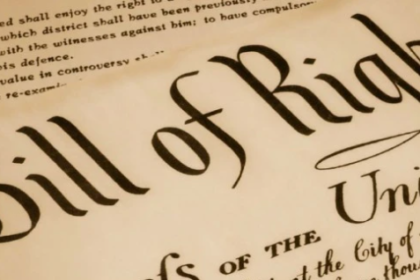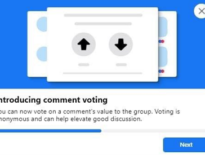
In 2018, some, in the U.S. Congress, proposed an Internet Bill of Rights that though well intentioned, was essentially a set of regulations proposed to adhere companies to obligations with regard to data, security, and privacy. At the time, I thought little of it; the notion didn’t get a tremendous amount of attention, but nagging me, in the back of my brain, was that a U.S. politician was proposing an industry regulation under the guise of “Bill of Rights.”
Article Highlights
What is a Bill of Rights?
The first ten amendments to the U.S. Constitution became known as the Bill of Rights; protections which still stand as a symbol and foundation of liberal ideals of individual liberty. The Bill exists to further limit government and the rule of law; largely concerning legal protections for those accused of crimes (and what were largely considered crimes at the time) while guaranteeing civil rights and liberties to the individual (e.g. freedom of speech, press, and religion). Such Bills are now found in countries and in the guidelines of governments throughout the world. A Bill of Rights sets rules for due process of law and, in the U.S. at least, reserves all powers not expressly stated as belonging to the Federal Government, to the people (or the States).
The Obama Administration, well before that proposal in 2018, used the name in the same way, publishing on the White House website, A Consumer Internet Privacy Bill of Rights. “Bill of Rights.” It was in revisiting that, that the nagging feeling I felt in 2018 became clear; that governments were increasingly appealing to the heart strings of what people want, without implementing (or even suggesting that what is needed are) the very limitations and controls on our governments.
Individual control, transparency, security… these are the tenets espoused by politicians lately, noble causes and certainly things that everyone wants; but the focus of political attention is toward the notion that we need these protections from companies (companies that we optionally choose to use) while the reach of governments remains unchecked.
Protection of our use of the Internet from Government
Thomas Paine
Government, even in its best state, is but a necessary evil; in its worst state, an intolerable one.
According to The Pew Research Center, 79% of Americans are concerned about how “companies” use their data. Their survey further showed that 70% of people want to know when companies are collecting personal data as well as knowing how companies use it.
A sea-change in public sentiment transpired over the last 15 years or so, from the exuberance for an unregulated bastion of free speech, the internet, to people seemingly being more concerned about what companies do, than what governments do with information about us.
I realize the political colors showing in my views here, and I’m not frequently one to speak so substantially about the role of government in society, but this a shift in the mindset of people the world over, that reveals a genuine concern – people are more concerned with what a business does (a business that has no means of enforcement of any decisions, beyond how we engage with them) more than the fact that governments (all governments, this isn’t a commentary specific to the U.S.), are empowered to enforce, regulate, and even act based on information.
This is one of the “laws of the land” so to speak, in the United States; the Fourth Amendment to the Constitution, one of many U.S. Amendments in the Bill of Rights that should clearly apply to our digital lives. It’s time that it clearly apply to the internet and the fact that every website, every company, online is virtual, worldwide, and should be protected from regulations that will limit what people can do on the internet.
The right of the people to be secure in their persons, houses, papers, and effects, against unreasonable searches and seizures, shall not be violated, and no Warrants shall issue, but upon probable cause, supported by Oath or affirmation, and particularly describing the place to be searched, and the persons or things to be seized.
Fourth Amendment to the U.S. Constitution
To that end, my take…
The Internet Bill of Rights
- All persons have the right to access the internet regardless of race, color, religion (creed), gender, gender expression, age, national origin (ancestry), disability, marital status, sexual orientation, or military status, in any of its activities or operations.
- Any and all free speech protections extend to every aspect of the internet. Government may not make, consider, nor may government employees express, any law abridging nor prohibiting the free exercise of speech or abridging the freedom of speech, inclusive of but not limited to written content, images, and video; nor infringe upon the right of the people peaceably to assemble, or to petition the Government for a redress of grievances, online.
- Government and law enforcement, or respective agencies, may not conduct monitoring, nor search, maintain, or seize, online information and data pertaining to any person, persons, or private organizations, with legally secured probable cause or explicit permission of the people in question. All data maintained and secured by a government entity must be completely wiped and removed, deleted, within 15 days of a request by an individual associated with said data; as long as said person and request is not under investigation with clear cause established and legally secured.
- Private property may not be used, taken, nor considered for broad public use, without just compensation; websites, apps, and other online works are considered the private property of their owners and creators, and use of such services are limited to the terms, conditions, and decisions of those owners, subject to change at any time.
- Internet properties privately owned, including but not limited to websites, apps, widgets, and eCommerce, are considered virtual (online) experiences for the purposes of commerce, and are not subject to local, regional, state/province, nor country, commerce regulations, limitations, tariffs, or taxation. Localized shipping, warehouse, and business tax policies and regulations may apply, given the physical presence of commerce in that regard; governments are prohibited from infringing upon or taxing the online aspects of commerce in any way.



Fully agree Paul!
We also must include limitations on the tech companies themselves. Twitter proved they are more powerful than the president of the united states, or at least are powerful enough to censor/editorialize him… its a worthy note many of the “fact checks” have now been retracted. Additionally, I personally know people that were banned for writing and saying things that are now mainstream accepted.
Update: it was just leaked and confirmed that Facebook is going to censor true content and news. The censorship of the likely source of COVID-19 and Hunter Biden is about to become official policy. Regulate the tech industry hard.
Not a disagreement but encouragement, talk it out further with me.
“Must limit tech companies” is a definitive statement so how? Which?
Start with this, define “tech company”
Dell is a tech company, are they not? So would the same requirements of what customers post on site (reviews for example) not have to apply to them too?
What about QQ, based in China. That will be enforced by whom?
Being more powerful than the President, I’m not really sure I see or agree with how that’s in any way shape or form, a problem. The President isn’t a Dictator, they aren’t the leader of the free world, they’re merely a person who sits in ONE office, for a bit, and has clearly defined responsibilities and limitations. Why does a site have to be obligated to give that person in particular an open forum?
LinkedIn can’t delete something Biden posts because, “President”?
And be explicit, please, because there is a ton of rhetoric. No one is editorializing on social media. Only “publishers” editorialize by determining what content gets published. Social media is you, me, or someone else posting – Facebook doesn’t CHANGE that (editorialize). They do, absolutely censor/ban/remove; that’s not the same as edit.
Why can’t a site ban whatever they want?
Love this, Paul!
A few thoughts…
A.) I think we could go down a separate rabbit hole on this discussion and I know you’ve posted other pieces about this (maybe link them here?) but clarifying (via Section 230) that a web site that allows public postings is not responsible for what the public posts there I think is always, always relevant as part of general public education on this important topic.
B.) Personally, I was also put off by the first clause. My thought is just say the government shall not prevent anyone from using the internet. Period!
The rest of the article is great, though I might put a right to access the internet does not impose upon anyone an obligation to provide access… again, I think that’s an interesting rabbit hole to consider, too. Thanks for keeping this conversation going.
In the U.S. (at least), for now, companies are protected from what other people post on their site, thanks to Section 230. Unfortunately, it is being attacked by Congress so we’re at risk of losing that protection; and it’s concerning that people don’t really realize or appreciate the implication of losing that — politicians are spinning that it’s about “social media” (which is loosely define) but that fact is that it applies to everything online, every site. Meaning, losing that protection will cause every site, every business, to be liable for anyone else anyone says. That fact that people aren’t up in arms that Washington is considering eliminating Section 230, is disturbing.
A bit more about that here; Repealing Section 230 in the United States; Here’s the Implication https://mediatech.ventures/repealing-section-230-in-the-united-states-heres-the-implication/
Bottom line, the internet as we know it, all of it (product reviews, blog comments, YouTube threads) all of it will cease to exist if websites are liable for what other people say.
What I’m trying to encourage is that our protections are in fact more extreme. Clause #5, “Internet properties privately owned, including but not limited to websites, apps, widgets, and eCommerce, are considered virtual (online) experiences for the purposes of commerce, and are not subject to local, regional, state/province, nor country, commerce regulations, limitations, tariffs, or taxation.”
Which is to say, no localized governance at all should apply to virtual (online) experiences. That would include a region of the world making a site liable for what others say/do upon it.
And it’s that Country By Country movement that’s building momentum, to regulate things locally (by way of a hundred different countries, and thousands of states/provinces/municipalities), that has to be arrested. It’s inconceivable for the internet to continue to thrive if (WHEN) every site has to adhere to local laws thousands of times over.
This was in the news today; Why Facebook, Twitter, Instagram could be banned in India from tomorrow?https://www.businesstoday.in/technology/news/why-facebook-twitter-instagram-could-be-banned-in-india-from-tomorrow/story/439972.html
Wait… what? India wants to ban social media?
HOW?? How could it possibly enforce that? Who is responsible? Who is accountable? If someone just across the border sets up a repeater so that people in India can get on Twitter, then what?? Satellite internet? A country is going to force a company that exists in another part of the world to prevent anyone specifically within that country from being able to use a site that also has offices somewhere else in the world??
This is getting ridiculous.
As to the 1st Clause, indeed. I agree that need not all be said but we seem to be in an era in which that which isn’t explicitly stated leaves wiggle room. It just felt like something that needed to be enumerated; not that I agree that it should need to be so.
Right to access to the internet does not impose upon anyone an obligation to provide access… yep. Wasn’t sure that really applies to the “internet” though; I distinguished that on purpose. That access is by way of physical infrastructure, which the internet is not. So that notion, that no one should be obligated to provide something, is a right that *should* supersede this; the fact that it’s wires to access the internet is no different than saying everyone has a right to a car, or a gun (that doesn’t mean anyone is obligated to make sure you have one).
Paul O’Brien any tech company that is a benefactor of 230 and operates a public square should properly be a platform. The content limitations should be on legal grounds exclusively. You could define a public square as x million+ users.
This would aswage the fears about small business or private business communities. However it is absolutely insane the power companies like Apple, Amazon, Facebook, Twitter and Google have at this point.
They are also consistently moving in a coordinated fashion. I know of cases where a user has been banned for actions taken on other platforms not even linked to. The anti-competitive behavior is the stuff of Trusts.
What resources are used regarding the scope and details of this bill? While there are good aspects to these key points, they do not seem to include the larger and more difficult part of extending individual, organizations, or business rights when the Internet company is functioning as a general public access services (i.e., Facebook, Google, etc.). I wish to research more on this topic but there is limited work done that I can find.